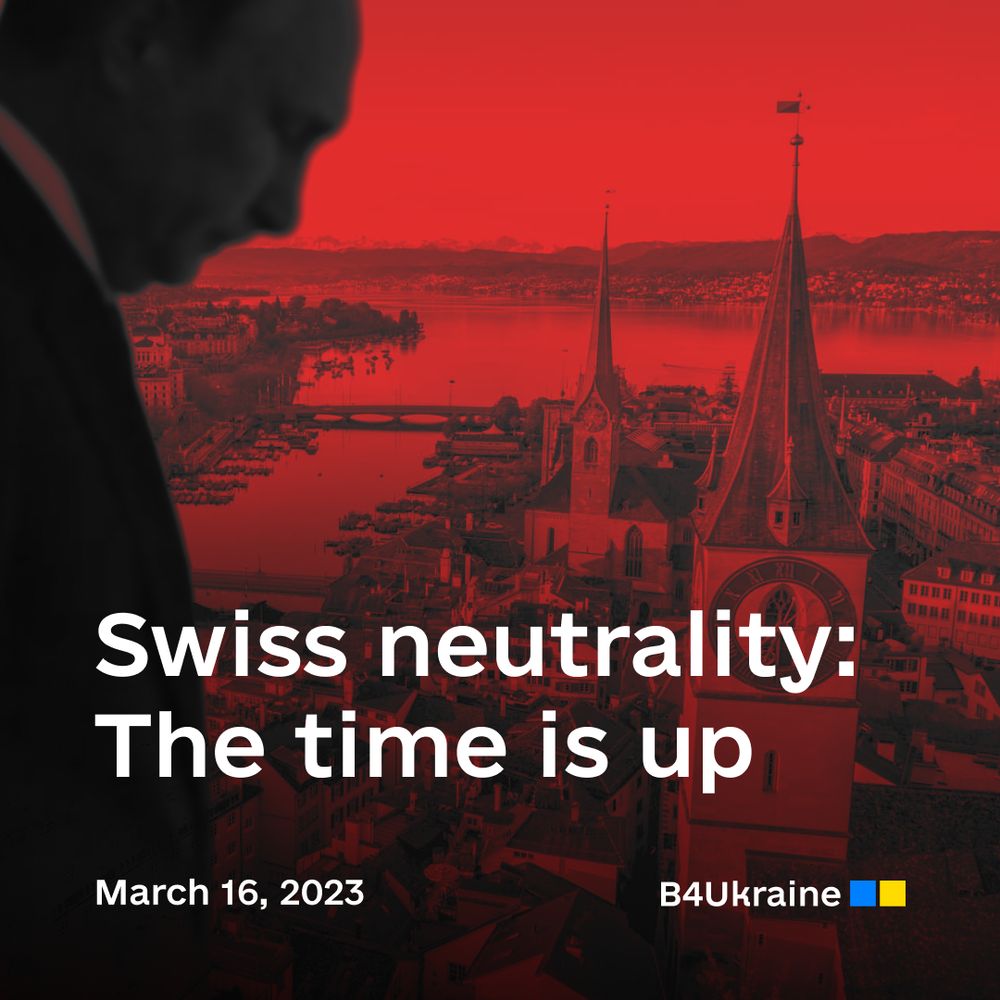
Despite its long-lasting tradition of neutrality, Switzerland can and should do more to aid Ukraine in saving lives and bringing peace to the European continent. Nataliia Popovych, one of the Steering Committee members of B4Ukraine, called on the Swiss parliamentarians at the Ukraine Forum in Bern to re-examine the role of Switzerland’s private sector in supporting Ukraine’s victory.
What about Swiss multinationals still in Russia?
72 of 139 (or 52%) of Swiss multinationals with ties to Russia at the start of 2022 continue to do business within the country, a new analysis by B4Ukraine reveals. For every $1 the Swiss government declares in bilateral aid to Ukraine, Swiss-based companies may still be paying $17 in taxes to the Russian state. Is there any logic to that? B4Ukraine — an international coalition of more than 80 civil society organizations — is calling on the Swiss government to urge their businesses to cut ties with Russia and issue market guidance advisories to warn of the heightened risks of continuing business there, particularly business activity that could benefit the Russian military.
Multinationals remaining in Russia contribute to the ongoing war of aggression by the taxes they pay, the technologies they provide and the supply chains they support. Exiting early and taking stock of your losses might be painful now, but as Sebastià Pons, the VP of FMC Corporation, an agricultural sciences company, put it: “Being ethical and doing the right thing will pay off in the long-term.”
Regulating commodity traders
In the first half of 2022, Swiss-based energy and agricultural traders marked record earnings of more than $115 bln, up 60% from the previous year and nearly three times higher than the pre-pandemic levels. It is a high-risk sector and a money-making machine for the Russian government since almost 80% of all Russian commodities are traded on Swiss soil, in cantons Geneva and Zug. Despite the rapid growth of this sector since the early 2000s, the Swiss government does not have a clear overview of this very critical sector to the Russian economy.
B4Ukraine supports the continuous efforts of such organizations as the Swiss-based Public Eye by calling on the Swiss authorities to establish a supervisory body in order to boost transparency of trading firms’ ownership and ensure that commodities do not originate in conflict zones or in countries subject to international sanctions.
Russia’s looted wealth
A related issue concerns the existence of large shadow reserves of president Putin and his inner circle since over the last three decades Switzerland has played a central role in concealing modern Russian private wealth. According to most recent reports, so far the Swiss authorities have frozen only around $8 billion of Russian assets. That is a small proportion of what the Swiss economics ministry says is roughly $49.3 billion of Russian assets in the country. European officials estimate the total to be close to $200 billion. Switzerland cannot afford to remain neutral while harboring massive amounts of Russian assets.